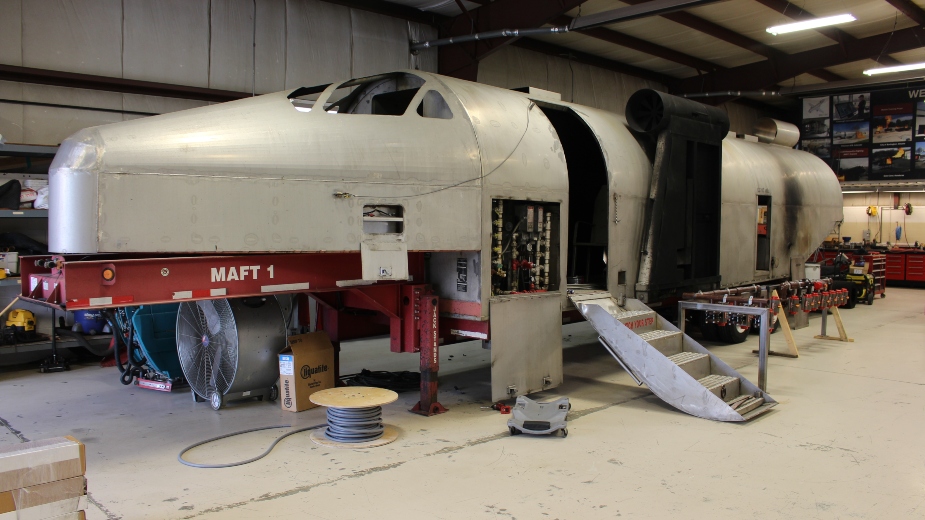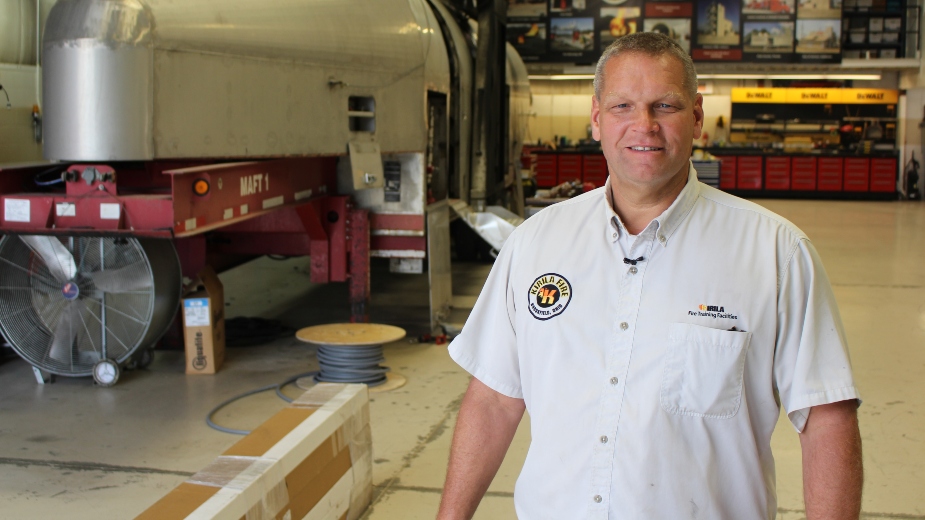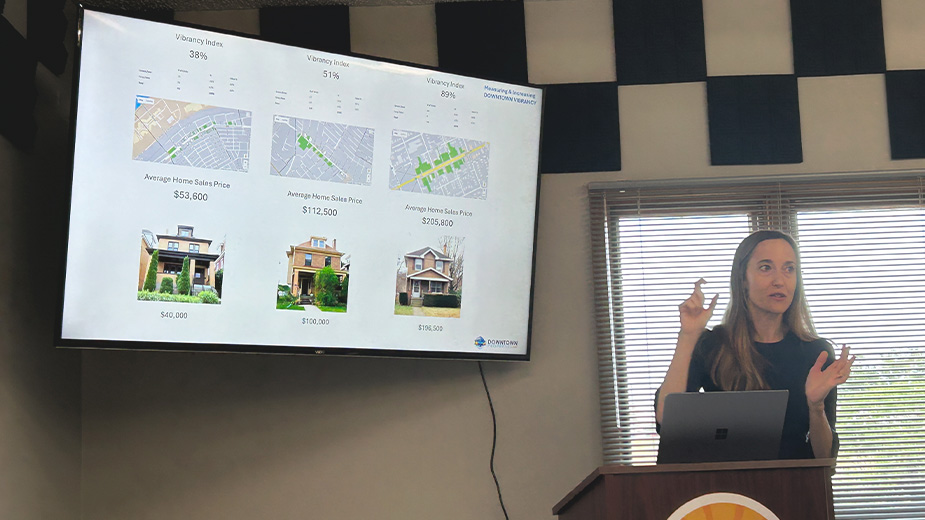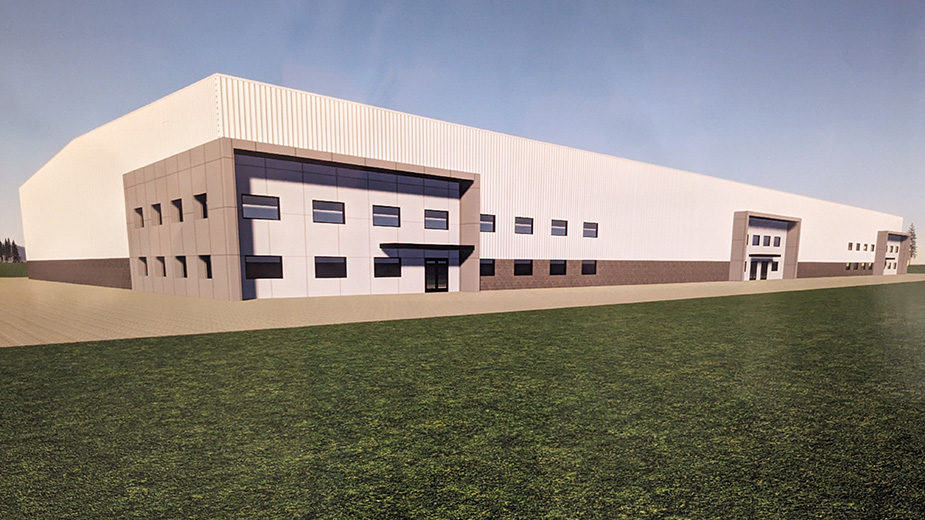Small Businesses Win Defense Department Contracts
YOUNGSTOWN, Ohio — Jerry Kirila, founder and president of Kirila Fire Training Inc., glances upon a list of 82 destinations printed on the rear panels of one of the company’s red mobile units, about the size of a large charter bus.
Among places listed are Lackland Air Force Base, Texas; March Air Force Base, Calif.; Tyndall Air Force Base, Fla.; McGuire Air Force Base, N.J.; Camp Butler, Japan; Ramstein Air Base, Germany; and the Youngstown Air Reserve Station in Vienna. A host of other locations follow, from Saipan to Turkey.
“There are tons of more places,” Kirila says. “We just ran out of room.”
Most of the business at Kirila Fire Training – about 70% – is done with the U.S. Department of Defense, Kirila says. Indeed, the company was founded 12 years ago based on doing business with the military. The Hartford Township company designs, manufactures, installs and maintains fire-training systems used at defense installations throughout the world as well as civilian sites such as airports.
“We’re now a global operation, and we became that because of the DOD,” Kirila says.
Kirila Fire Training Inc. represents a sector of the regional economy that has developed a distinct relationship with the defense industry, which translates into millions of dollars worth of business every year.
Manufacturers, contractors and distributors across the region are vital links in a supply chain that keeps the armed forces prepared and equipped with the resources necessary to defend the country.
While weapons systems and aircraft command most of the attention, the government must also rely on those contractors that manufacture and supply bolts, hoses, small components, construction services and everyday items that collectively allow the defense industry to operate effectively.
During fiscal 2018, companies in Mahoning, Trumbull and Columbiana counties secured $44.9 million worth of business with the Department of Defense, according to USASpending.gov. Thus far in fiscal 2019, these counties had $10.7 million worth of defense work on their books, according to the site.
In western Pennsylvania, companies in Lawrence County registered $1.6 million in DOD business during fiscal 2018 and stood at $150,580 through fiscal 2019. Meanwhile, companies in Mercer County saw $3.2 million worth of business with the Defense Department and secured $149,157 through fiscal 2019.
A sizeable chunk of defense contracts awarded to Trumbull County companies has gone to Kirila, which specializes in training military personnel on how to respond to fire emergencies on aircraft and vehicles. The company manufactures and fabricates mock aircraft, towers and vehicles and equips them with a patented ignition system that can spark blazes inside and outside the craft.

During a morning in late spring at the company complex in Harford Township, workers were putting the final touches on one mock aircraft, while the skeleton of another was under construction in an adjacent building. These structures, along with the company’s ignition systems, are primarily shipped to U.S. Air Force bases all over the country, where flight and ground crews receive training on how to combat fires.
Kirila mobile units serve as a part office, part living quarters for those employees who travel across the country to install these systems, he says.
“We just did a large project at Tyndall Air Force Base in Florida for the fire and research lab there,” Kirila says. He estimates there are just three other companies in the country that have the capabilities Kirila commands. “We’re pretty busy,” he says.
Trumbull County companies secured $20.3 million in business from DOD in fiscal 2018 and have posted $481,720 worth of business thus far in 2019.
“We’ve been awarded more than 85 projects from the federal government since 2009, and more than half of those projects were with the Department of Defense,” says Dawn Ochman, president of Dawn Inc., a design, construction and renovation business in Warren.
“These contracts are the lifeblood of our business, even more so when the economy is not doing well and very few dollars were being spent in commercial construction,” she says. “In the past 10 years, about 95% of our sales were with the government.”
More recently, Dawn Inc. was awarded a $3 million contract to perform renovation work at the Pittsburgh Air Reserve Station, according to USASpending.gov.
Ochman says securing work for DOD is challenging at first, especially for a small business. Once a company proves itself and maintains a solid track record with the government, subsequent business comes more easily.
“Customers including the DOD want to see strong past performance not just in construction, but in government contracting,” Ochman says. “Once you have a few successful projects under your belt, you become a much bigger player in this arena.”
Doing business with the Department of Defense is much different than dealing with the private sector, Ochman elaborates.
“We’ve spent as long as two years planning for a proposal submission to the government,” she says. “If awarded, we then have the opportunity to bid on work for the customer for another 60 months. This is not typical in commercial construction.”
Manufacturers and service providers across Mahoning County also have realized a steady business with DOD. In fiscal 2018, companies in Mahoning County did $11.2 million worth of business with the Department of Defense and have secured $4.5 million in contracts through fiscal 2019.
The scope of these companies is diverse.
Corcon Inc., an industrial-painting company based in Coitsville Township, is in the midst of a multi-year contract valued at $6.8 million, while Valley Food Systems Inc., Youngstown, repeatedly wins new business with the DOD through the company’s A-rations program, which supplies packaged meals to the National Guard.
Other companies, such as Salem-Republic Rubber Inc. in Sebring, manufacture items specifically designed for defense applications.
“We’ve been working with the military over the last seven years, and it’s really kicked off over the last three,” says James Dunchuck, vice president of sales and marketing at Salem-Republic. “We positioned ourselves with some of the things we did in 2015 and 2016 to open up some of these opportunities,” he says.
Salem-Republic manufactures industrial hoses and accessories used as support equipment for commercial and military aviation, Dunchuck says. About three years ago, the company refocused its attention on engineering and sales directed toward winning more business with the government.
The company has attracted the attention of the DOD because of a particular hose known as an air start duct, Dunchuck says. These hoses are used by ground crews to supply fixed-wing aircraft with pressurized air that helps kick-start the turbines of the plane.
“We are one of two manufacturers of that product worldwide,” he says. The duct system also comes with hose couplings and scuffers – spiral coverings that slide over the duct hose to prevent abrasive wear since they are repeatedly used on flight decks and tarmacs.
Contracts with the DOD can range between several thousand dollars to longer-term deals of $1 million and $1.5 million that could stretch over three years, Dunchuck says.
Salem-Republic Rubber Inc. employs about 70.
“The future for us is refining our approach in ground-support equipment,” Dunchuck says.
Meanwhile, the company continues to work on improving its internal operations and strives to become more efficient as it increases market share. “We’re a qualified underdog in this arena,” he observes.
Other local companies provide services to the DOD to save that agency money. For example, the government often chooses to contract with companies that are capable of refurbishing heavy-duty equipment instead of buying new vehicles or other machines.
“We’re working on a couple of different projects,” says Ken Timmings, manager at KTSDI in North Lima. The company is most active in the DOD’s service-life extension program, or SLEP. “They have an aging fleet of vehicles and there are two cost scenarios – that is to purchase new or to rebuild under SLEP,” he says.
That’s where KTSDI comes in. The company can take a vehicle the military uses and take it down to the bare bones, rebuild that vehicle and place it into service in like-new condition.
“There are different SLEPs going on all the time,” Timmings says. ”It’s a common method to look at their fleets.”
Recently, the DOD put out a request for proposal to recondition rough-terrain container handlers, Timmings says.
“We’re involved in the powertrain components and electronic steering for that,” he says, noting the company has worked with other contractors on similar programs. “A lot of work is done on-site; but they also send components to us and we send them back refurbished.”
Companies such as KTSDI are able to recondition parts or vehicles for 60 to 90 cents on the dollar when compared to new purchases, he notes. “It’s a fraction of the cost,” he says.
Most of the work KTSDI does with defense involves new-vehicle technology. “We’ve done work with all the branches of the military and traveled to locations from Alaska to Guam,” Timmings says.
Still, even work with the DOD or other government agencies isn’t always a sure thing, Timmings says. “It’s either feast or famine,” he says. “It comes in very little at a time or it comes in a lot.”
Pictured above: Jerry Kirila, president of Kirila Fire Training Inc., develops systems used at defense installations.
Copyright 2024 The Business Journal, Youngstown, Ohio.



